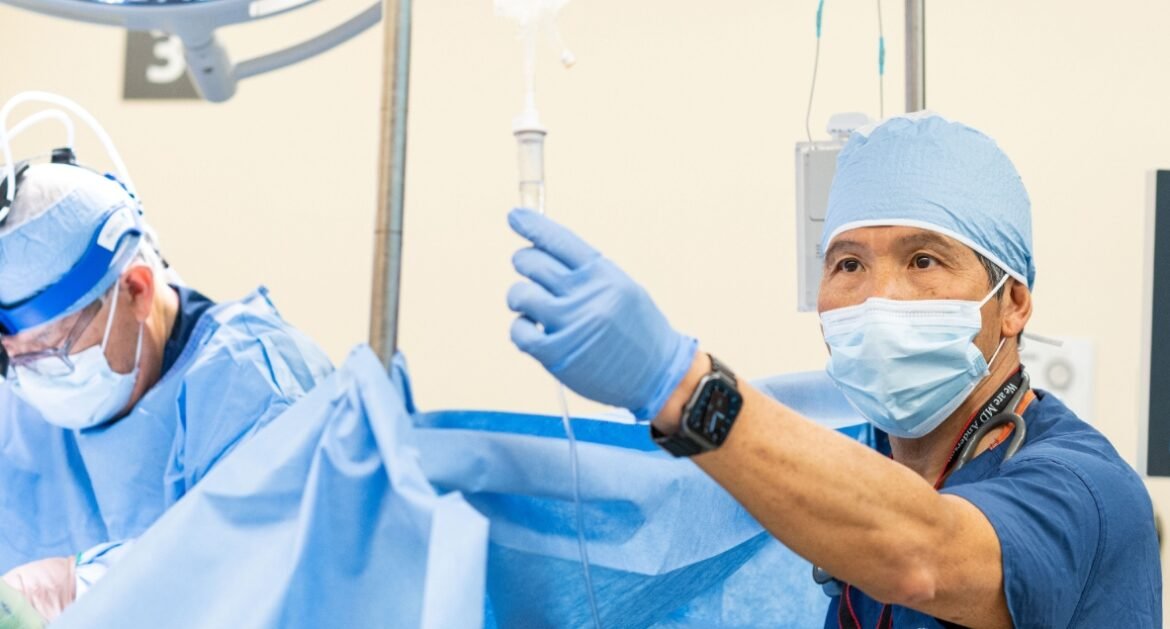Table of Contents
Anesthesiologists are often associated with operating rooms and planned surgeries, but their expertise extends far beyond scheduled procedures. In emergency medicine, they play a vital role in stabilizing critically ill or injured patients, managing pain, and ensuring safe anesthesia under high-pressure, time-sensitive conditions. Their ability to act quickly, make precise decisions, and employ advanced techniques can be the difference between life and death.
The Role of Anesthesiologists in Emergency Medicine
In emergencies, anesthesiologists serve as critical care specialists who can:
- Manage Airway and Breathing: They ensure patients can breathe safely, often performing intubation or mechanical ventilation.
- Stabilize Circulation: Through careful monitoring and administration of fluids and medications, they maintain blood pressure and heart function.
- Control Pain: In trauma cases, they provide immediate pain relief to reduce suffering and prevent shock.
- Assist in Surgery: Many emergency procedures, such as trauma surgery, require anesthesia, and anesthesiologists provide the necessary sedation and monitoring.
Their training in physiology, pharmacology, and critical care allows them to handle complex, unpredictable situations effectively.
Trauma and Critical Care
Trauma patients often arrive in unstable conditions with multiple injuries. Anesthesiologists work alongside trauma surgeons to:
- Assess the patient’s overall condition quickly
- Administer medications for rapid stabilization
- Ensure oxygenation and circulation are maintained
- Adjust anesthesia plans based on real-time changes
In critical care units, anesthesiologists manage patients with life-threatening conditions, such as severe infections, heart attacks, or respiratory failure, providing continuous monitoring and interventions.
Pediatric and Obstetric Emergencies
Anesthesiologists also play a crucial role in emergencies involving children and pregnant women:
- Pediatric emergencies: Children respond differently to medications and require careful dosing and monitoring during surgery or resuscitation.
- Obstetric emergencies: Anesthesiologists provide rapid anesthesia for emergency cesarean sections and manage pain and safety for both mother and child.
Their expertise ensures that vulnerable populations receive precise, life-saving care.
Coordination with Emergency Teams
Effective emergency care relies on teamwork. Anesthesiologists collaborate closely with:
- Trauma surgeons
- Emergency room physicians
- Nurses and respiratory therapists
- Radiologists and other specialists
Clear communication and rapid decision-making allow the entire team to act efficiently, minimizing complications and improving outcomes.
Technology in Emergency Anesthesiology
Modern tools enhance the anesthesiologist’s ability to save lives during emergencies:
- Portable monitors for heart rate, oxygen, and blood pressure
- Point-of-care ultrasound for rapid assessment of internal injuries
- Advanced airway devices for difficult intubations
- Telemedicine support in remote or mass-casualty situations
Despite these technological advances, the anesthesiologist’s skill and judgment remain the most critical factors in patient survival.
FAQs
1. Are anesthesiologists always present in the emergency room?
They may not be on-site at all times but are often called for critical cases requiring airway management, emergency surgery, or intensive monitoring.
2. How do anesthesiologists help in trauma cases?
They stabilize patients, control pain, manage breathing, and provide anesthesia for urgent surgical interventions.
3. Can anesthesiologists handle multiple emergencies at once?
In high-volume situations, they prioritize cases based on severity and work with teams to ensure all critical patients receive timely care.
4. Do anesthesiologists only work in hospitals?
While most work in hospitals, some also participate in pre-hospital care, military medicine, and disaster response teams.
5. What skills make anesthesiologists vital in emergencies?
Their expertise in critical care, airway management, rapid decision-making, and precise medication administration makes them essential in high-stakes situations.



